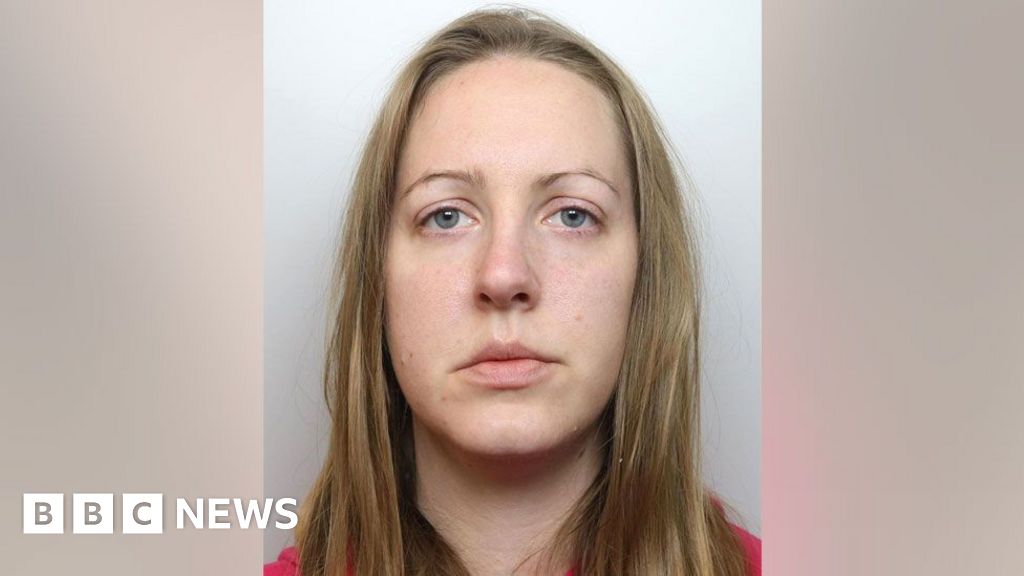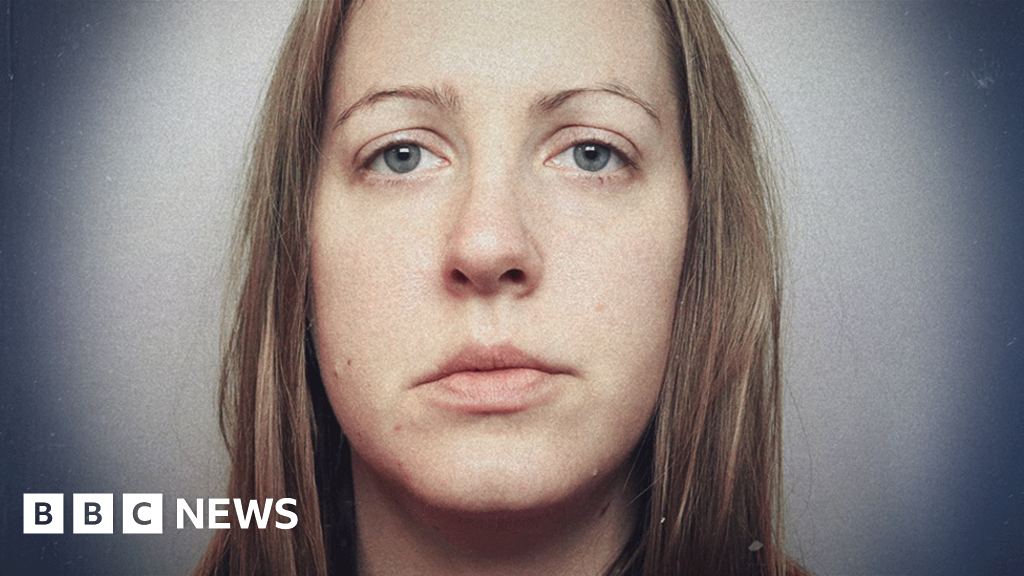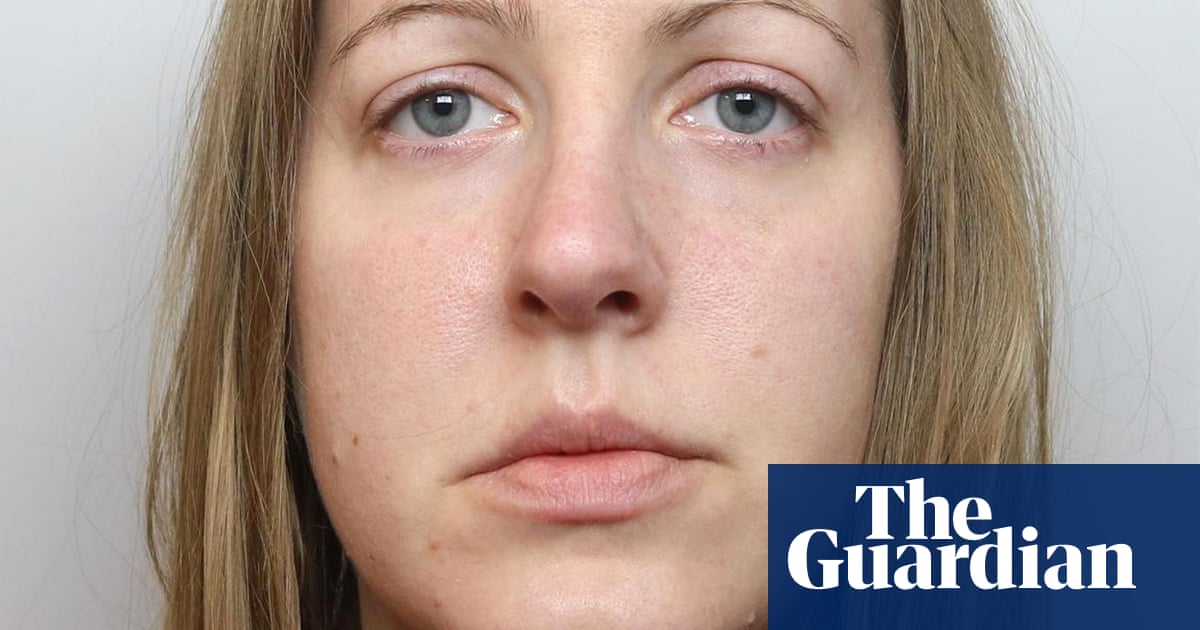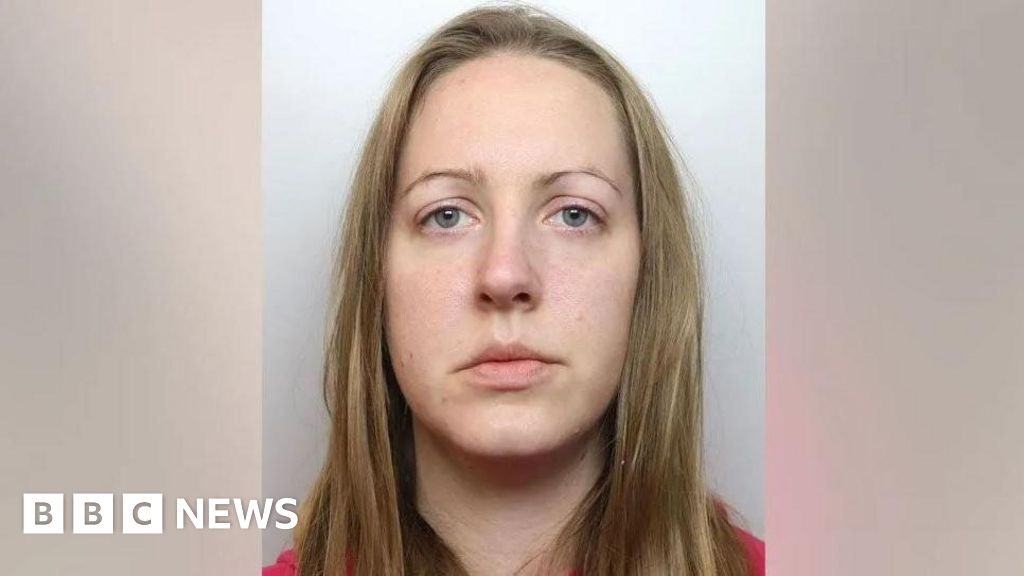I'd be baffled by the notion that the safety of the conviction shouldn't be questioned because it might upset the parents of the deceased children. Surely they wouldn't want someone who might be innocent locked up for life and condemned to die there? In that regard I thought the statement by Justice Thirlwall at the start of the enquiry was disgraceful. (
“All of this noise has caused additional enormous stress for the parents who have suffered far too much." she said.)
It's more than "noise" - and it's going to get a lot louder.
Anyway, there were more stories over the weekend - including this one in the New York Times on Friday which summarised the key questions being raised in detail:
https://www.nytimes.com/2024/10/24/world/europe/lucy-letby-uk-
5 Key Questions Hanging Over the Lucy Letby ‘Killer Nurse’ Case
Ms. Letby, a neonatal nurse in England, was convicted of murdering seven babies last year. But a growing number of experts have raised concerns about the evidence.
Ms. Letby, 34, was handed https://archive.is/o/dWcIU/https://www.bbc.co.uk/news/articles/cljyn2e7l3yo (15 mandatory life sentences). But in the months since, a growing number of experts have suggested that the evidence used to convict her was flawed. Serious questions were first raised in a https://archive.is/o/dWcIU/https://www.newyorker.com/magazine/2024/05/20/lucy-letby-was-found-guilty-of-killing-seven-babies-did-she-do-it (13,000-word New Yorker) article in May. Since then, dozens of statisticians and medical experts have expressed concerns.
Ms. Letby has always maintained her innocence. In May, her request to appeal her original murder convictions was denied. She was separately https://archive.is/o/dWcIU/https://www.nytimes.com/2024/07/02/world/europe/lucy-letby-nurse-attempted-murder.html (convicted in July in a retrial) of one count of attempted murder, and on Thursday judges will consider her right to appeal that ruling.
Here’s what to know about the main concerns raised about Ms. Letby’s convictions.
Statistics were misused, many experts say.
After Ms. Letby was found guilty last year, Britain’s health secretary announced a public inquiry — an official investigation conducted by a judge, with hearings in public — to discover how a serial killer could get away with her crimes for so long. That began last month in Liverpool and is expected to continue until early next year.
But in July, 24 experts in statistics, forensic science and neonatology wrote to the British government, https://archive.is/o/dWcIU/https://www.nytimes.com/2024/08/29/world/europe/lucy-letby-innocent-inquiry-nurse-babies.html (raising concerns) over the way statistics and medical evidence were used in the case and calling for the inquiry to conduct “a broader examination of potential factors contributing to the increased neonatal deaths, without the presumption of criminal intent.”
Jane Hutton, a professor of statistics at the University of Warwick, is one of the people who signed the letter. In an interview, she described several concerns with the case, including that a number of baby deaths took place on the unit when Ms. Letby was not present, but that these had been excluded from the prosecution’s analysis.
“You’re using data that’s explicitly not fit for purpose,” Professor Hutton said. She and other statistical experts have criticized a diagram, created by the police, which the prosecution presented as a key piece of evidence. It showed which nurses were on shift on the days that 24 babies died or collapsed. An “x” showed Ms. Letby’s presence on every shift.
But the diagram does not account for all deaths or sudden deteriorations in babies’ condition in the unit at the time, only those that the authorities already believed Ms. Letby was involved in, creating a skewed sense of her presumed guilt, statisticians say. The police and prosecutors declined to respond to a request for comment on the table.
Nobody ever witnessed Ms. Letby harming a baby, and the case against her was circumstantial. At trial, her lawyer argued that she was being scapegoated for “https://archive.is/o/dWcIU/https://www.theguardian.com/uk-news/2023/jun/30/lucy-letby-an-obvious-target-to-blame-at-hospital-that-failed-babies-court-told (serial failures of care)” resulting from chronic understaffing.
Britain’s Royal Statistical Society, a professional association, warned the
inquiry in a letter last year that “it is far from straightforward to draw conclusions from suspicious clusters of deaths in a hospital setting,” and referred to
a report it published in 2022 titled “Healthcare serial killer or coincidence?”
Doubts have emerged over the ‘air embolism’ evidence.
Some of the babies who died showed unusual skin discoloration. During the trial, the prosecution’s lead expert witness, a retired pediatrician named Dr. Dewi Evans, argued that this was a sign of an “air embolism” in which one or more air bubbles blocks blood flow. The prosecution argued that Ms. Letby had
injected seven babies with air, which in some cases proved fatal.
Dr. Evans said he had no direct experience of a patient suffering an air embolus, but he relied on academic research, including a 1989 paper co-written by Dr. Shoo Lee, a Canadian neonatologist, which detailed cases of air embolism in babies who exhibited skin discoloration.
The prosecution argued that the babies who died or deteriorated had similar patterns on their skin.
However, during Ms. Letby’s
appeal application, Dr. Lee disagreed with this analysis and said that none of the babies in the trial should have been diagnosed with air embolism. The diagnosis is “a very rare and specific condition and should not be diagnosed by excluding other causes of death or collapse and concluding that it must be a case of air embolus because nothing else could be found,” he said.
Insulin poisoning evidence has been questioned by clinical experts.
Ms. Letby was found guilty of attempting to murder two babies whose blood sugar levels unexpectedly dropped.
Tests suggested the babies had high levels of insulin but only a negligible amount of C-peptide, a substance detected when insulin is produced by the body. The prosecution argued the insulin must therefore have been administered externally.
There was no direct evidence that Ms. Letby gave the babies insulin, but the prosecution suggested she had tried to poison them by adding it to their nutritional feeds.
In court, Ms. Letby was asked whether she agreed that artificial insulin had been given to the babies, given the test results, and she agreed it must have been. But, she added, “how or who I can’t comment on, only that it wasn’t me.”
But the tests — known as immunoassays — are not reliable enough to be used as evidence in court, multiple experts have said. The Royal Liverpool Hospital laboratory where the tests were done warns in its online guidance that they are https://archive.is/o/dWcIU/https://pathlabs.rlbuht.nhs.uk/insulin.pdf (“not suitable”) to investigate low blood sugar created by an insulin injection. If that is suspected, the samples should be analyzed elsewhere, it says. But both babies recovered, so their samples were never referred anywhere else.
Prof. Alan Wayne Jones, a forensic toxicology expert, told https://archive.is/o/dWcIU/https://www.thetimes.com/uk/crime/article/lucy-letby-innocent-guilty-evidence-nurse-g9w68wdgd (The Times of London), “Positive immunoassay results are not sufficient as binding toxicological evidence of foul play in a criminal prosecution for murder.”
Dr. Adel Ismail, the former head of a National Health Service pathology lab, https://archive.is/o/dWcIU/https://www.telegraph.co.uk/news/2024/10/18/insulin-tests-convict-letby-cannot-be-relied-upon/ (told The Daily Telegraph), “Of all the technologies we use in the lab for measurements, the one with the highest error rate is the immunoassay.”
Psychologists have questions about a note that was treated as a confession.
During the trial, the jury was shown Post-it notes that were densely covered in Ms. Letby’s handwriting. The prosecution highlighted the phrases, “I am evil I did this” and “I killed them on purpose because I am not good enough to care for them.” But on the same piece of paper, Ms. Letby had also written, “I haven’t done anything wrong,” “Why me,” “Police investigation slander discrimination victimisation,” and “help me.”
https://archive.is/o/dWcIU/https://www.theguardian.com/uk-news/article/2024/sep/03/i-am-evil-i-did-this-lucy-letbys-so-called-confessions-were-written-on-advice-of-counsellors (The Guardian) reported last month that the notes were the result of counseling sessions in which Ms. Letby was advised to write down her feelings as a way of coping with extreme stress after she came under suspicion. David Wilson, a professor of criminology at Birmingham City University, told The Guardian that the notes “were meaningless as evidence.”
When the police asked Ms. Letby, after her arrest, why she had written “I am evil I did this,” she told them that she had worried that she might have hurt the babies “without knowing.” “I was blaming myself, but not because I’d done something,” she said, in a transcript that was read out https://archive.is/o/dWcIU/https://www.theguardian.com/uk-news/2023/apr/27/lucy-letby-told-police-i-didnt-kill-them-on-purpose-court-hears (during her trial).
There were longstanding concerns about the neonatal unit.
Beneath the gilded vault ceiling of Liverpool Town Hall earlier this month, a judge and a roomful of journalists and lawyers at the public inquiry heard harrowing testimony about conditions in the neonatal unit where Ms. Letby worked.
One senior doctor, whose identity is protected by a court order, agreed with another doctor’s assessment that by January 2016 the unit was “almost at breaking point” because of staffing shortages.
An official regulator
assessed the hospital in February 2016 and warned that nurse staffing levels did not meet recommended standards, and said this had been recorded as a “high risk” factor for the unit since 2010. The regulator also found the unit lacked the space and resources to care for babies requiring strict infection control.
A separate independent https://archive.is/o/dWcIU/https://www.chesterstandard.co.uk/news/15978747.no-single-cause-identified-for-rise-in-baby-deaths-at-countess-of-chester-hospital/ (report in 2016 by The Royal College of Pediatrics and Child Health) found that staffing was “inadequate” to care for the sickest babies, and said there had been “higher activity and lower admission birth weight than average during the period corresponding to an increase in mortality.”
In addition, risk reports from the hospital that were https://archive.is/o/dWcIU/https://www.telegraph.co.uk/news/2024/08/03/countess-of-chester-hospital-lucy-letby-bacteria-outbreak/ (leaked to The Daily Telegraph) and
the BBC this year showed that the bacterium Pseudomonas aeruginosa, which killed three babies in a https://archive.is/o/dWcIU/https://www.nytimes.com/2019/10/07/us/babies-bacterial-infection-pennsylvania.html (Pennsylvania hospital in 2019) and is highly dangerous to premature infants, was present in water taps in the neonatal unit in early 2015.
As deaths on the unit increased, a group of doctors became convinced of Ms. Letby’s involvement, and the hospital reached out to the police.
Professor Hutton, the statistician, believes the hospital should have first reported the deaths to Britain’s Health Security Agency, which is responsible for protection against infectious diseases, rather than starting from the assumption that a crime had been committed.
“If you’ve got a cluster of deaths in a health care setting, in my view, you should not be taking that to the police, because then you’re presuming guilt,” she said.
Epidemiologists who specialize in assessing clusters of deaths should have made an initial assessment, she said: “We are all prone to bias, and what we want to do is minimize the risk of bias.”

 www.theguardian.com
www.theguardian.com


 www.youtube.com
www.youtube.com









